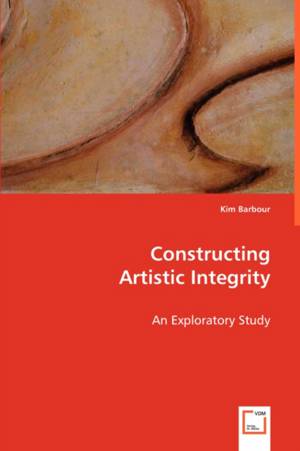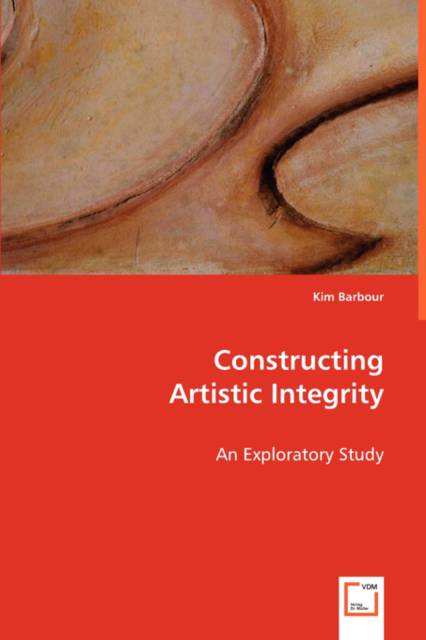
Bedankt voor het vertrouwen het afgelopen jaar! Om jou te bedanken bieden we GRATIS verzending (in België) aan op alles gedurende de hele maand januari.
- Afhalen na 1 uur in een winkel met voorraad
- In januari gratis thuislevering in België
- Ruim aanbod met 7 miljoen producten
Bedankt voor het vertrouwen het afgelopen jaar! Om jou te bedanken bieden we GRATIS verzending (in België) aan op alles gedurende de hele maand januari.
- Afhalen na 1 uur in een winkel met voorraad
- In januari gratis thuislevering in België
- Ruim aanbod met 7 miljoen producten
Zoeken
€ 71,95
+ 143 punten
Omschrijving
This study explores the concept of artistic integrity. A historical foundation for artistic integrity is laid to provide a context within which eight artists' constructions of the concept can be placed. To date, little research has been conducted to discover how artists feel about artistic integrity, despite the fact that the concept is used frequently in the popular media, and in arts and creative industries policy.Secondary research into European Romanticism, and the growth of the creative industries, traces the development of artistic integrity through to the contemporary New Zealand arts environment.The multifaceted nature of the history of artistic integrity is mirrored in the complexity of the responses from the artists involved in this research. Key themes did emerge, but opinions offered on these themes by the artists were often very different from each other, and occasionally even contradictory.The artists' responses illuminate how differently artistic integrity could be interpreted throughout the creative community and question the validity of current uses and definitions of the concept.
Specificaties
Betrokkenen
- Auteur(s):
- Uitgeverij:
Inhoud
- Aantal bladzijden:
- 100
- Taal:
- Engels
Eigenschappen
- Productcode (EAN):
- 9783639053074
- Verschijningsdatum:
- 1/08/2008
- Uitvoering:
- Paperback
- Formaat:
- Trade paperback (VS)
- Afmetingen:
- 152 mm x 229 mm
- Gewicht:
- 145 g

Alleen bij Standaard Boekhandel
+ 143 punten op je klantenkaart van Standaard Boekhandel
Beoordelingen
We publiceren alleen reviews die voldoen aan de voorwaarden voor reviews. Bekijk onze voorwaarden voor reviews.









